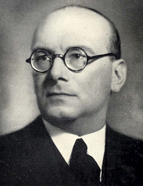

In comparison: "The regent was the man who had shed the medieval armour with which he had left the kingdom and donned the modern doublet." King Henrique was the knight who, without unbuckling his chain mail and sleeping in it like a sackcloth, had dressed as a merchant and a sailor, ready to let the garment fall when he didn't need it for himself and his people, reappearing dressed in steel, his lance aloft, the chequered horse for the great tournament with the very modern" (O Infante D. Henrique…, 2004, p. 164). In conclusion: "The scrutinising magician of the Autumn of the Middle Ages , Huizinga formulated this rule: at this time, more than any other, the great historical events are not the result of the will of men, nor are they prepared by them. An old middle-aged man, loving her and envisioning a return to her, Prince Henry was, after all, one of the greatest creators of the modern world" (Ibidem).
In the last years of his life in Paris, Veiga Simões, despite successive health problems that weakened him and his wife, aggravated by the ostracism to which he had been condemned by the Ministry of Foreign Affairs, still found the strength to devote the best of his time to writing history. Particularly in the early days of nationality. To the friends who continued to correspond with him and shared with him his love of studying the past, he was able to handle the various projects he had in hand. The friends who still visited him saw it with their own eyes, they held them in their own hands. Some are still handwritten. But others already in print. Like the volume dedicated to the Infante das Sete Partidas. João Alves das Neves was one of those friends. He was one of those who, after his death, most regretted the disappearance, shrouded in mystery, of all that labour. So painstakingly and patiently built up over decades. Between Europe and Brazil. "Its non-publication irreparably jeopardises the study of four centuries of Portugal and its antecedents." So wrote Vitorino Magalhães Godinho, one of the few historians who has consistently remained faithful to his legacy (“Alberto da Veiga Simões”…, 1990, p. 591). A legacy that needs to be rediscovered because: "Beyond all the metaphors, he was a meteor that tore through the sky of a stagnant and amorphous historiography, as it was in the '20s and '30s, and his essays on history are close to those of António Sérgio, Jaime Cortesão, Duarte Leite and even João Lúcio de Azevedo, which means that some of the most profound and well-structured proposals for reading our collective life came from his pen and his brilliance", wrote another historian, Marques de Almeida, one of his most devoted readers and greatest admirers (Estudos de História [Studies on History]…, 2004, p. 14).
This work is financed by national funds through FCT - Foundation for Science and Technology, I.P, in the scope of the projects UIDB/04311/2020 and UIDP/04311/2020.
